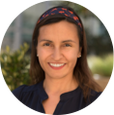I must thank those who advised me to start applying for next step as early as possible. In the US, a PhD takes at least 5 years, so I started my search when I was in my fourth year. I started by attending special career events offered by liberal-art colleges. As I was exploring the job market, I noticed that employers (for tenure-track positions) generally asked for three things: a PhD degree, a postdoc and publications. Of course, I was not a doctor yet, and of course I didn’t have a postdoc. Some professors told me that if the employer wants you, they will wait for you to graduate. And it is true, it can happen, but this is the exception rather than the rule. After asking and discussing with many people about the job market, I learned that even if I wanted to go to a teaching focused institution, I would need some postdoctoral experience. This was an important lesson, thus, I extended my search to start looking for a postdoctoral position.
I found many postdoc offers advertised throughout the year, with a peak around October. This is good, right? But when I looked at them closely, they were for very specific topics and had very specific requirements. I learned how hard is to find a good match between your own interests and the positions offered. My strategy was to start looking for advertised positions that were specific to my research topic. You can imagine the outcome: There were not that many! Second lesson learned: keep your options open. The next challenge was the publication record. In my case, I did have a continuous publication record since my undergrad, but unfortunately none of my papers was a high impact paper. This won’t rule you out of the competition, but it makes things somewhat more challenging. Lesson three: try as hard as you can to publish early and to target higher impact journals. I applied to most of the positions I found relevant to me. I was invited to four interviews, which I’ve been told is a good record. But I wasn’t lucky. So, what to do next? I began looking into the articles that I liked the most and started sending emails to the researchers I was interested in working with. This strategy requires time and dedication, and a clear idea of the questions you want to address during your postdoc. It also requires a lot of perseverance, and the willingness to accept a “no” as an answer. Nevertheless, this process often results in growing your network and shaping ideas and projects. Graduation date finally arrived. My plans for a postdoc were still on hold, but I had been offered a position as lecturer and as a research associate at UCLA. This gave me time to keep working on applications. It was great to have this opportunity to build up my CV while doing something I enjoy (in this case teaching). In the end, the emailing strategy was the one that worked for me. It took me about six months after I graduated from my PhD to find my postdoc position (Total of 1.5 years in the search). Of course, this may vary for each person (click here for other perspectives: experience 1 and experience 2), but for all, it requires time, skills and perseverance. Today, I am finishing my first year as a postdoc at the Max Planck Institute for Ornithology. It has been a great academic experience and I am having a great time in Germany. In academia, there is always a next step. So, the question “what now?” will be always there. My advice is to keep your mind open. If you are still doing your PhD, start looking for options early, you can also subscribe to a mailing lists to learn about job offerings, and don’t forget about the power of networking. Talking to people is the best way get through academia. Not because they will give you a job, although that may also happen, but because they can give you wise advice. If you don’t know exactly what you want to be or what step to take next, your colleagues will be your best shot. And, if you are not sure about academia, don’t worry, it is not the only option. Nowadays PhDs are welcome in consulting companies, industry, medicine among other areas. The options are wide; keep your eyes open, and more importantly, don’t worry about the future, worry about what you can do today to make your goals become true.
0 Comments
Leave a Reply. |
|

